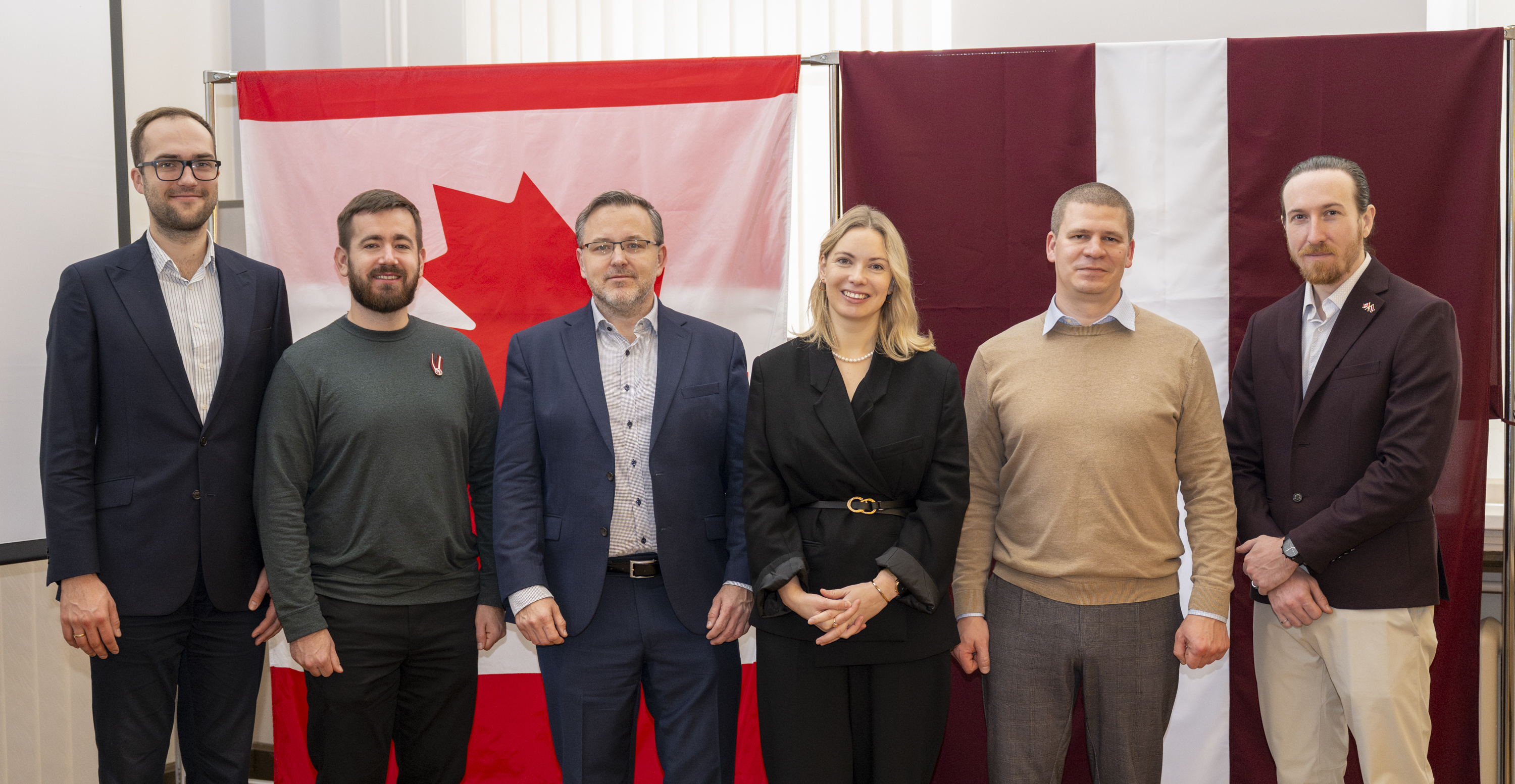Latvia and Canada Strengthen NATO Cyber Defenses in Threat Hunting Workshop

Earlier this November, Canadian and Latvian cyber experts led a four-day Threat Hunting Workshop in Riga, helping NATO allies become proactive defenders, capable of identifying threats before they occur. The workshop was organized in cooperation with the Latvian Ministry of Defence, the Cyber Incident Response Institution of Latvia (CERT.LV), and the Canadian Armed Forces (CAF) Cyber Command, providing a platform for expert insights from both nations.
In his opening speech, Varis Teivāns, Technical Director and Deputy Manager at CERT.LV, highlighted the significance of threat hunting, noting that it is no longer just a technical exercise but a critical necessity. He emphasized the importance of mutual cooperation: “Collaboration with our international partners allows us to come together, share intelligence, and strengthen our collective threat hunting capabilities.”
Canadian Ambassador to Latvia Brian Szwarc built on this message, stressing the importance of international collaboration: “We’ve had three years of cooperation in cyber, and it continues to grow stronger.” He further highlighted the strategic value of regional networks: “Ukrainian and Latvian networks have been deemed systems of importance to Canada,” he noted.
Canadian and Latvian experts joined participants in the classroom to share real-world experience and provide practical tools and techniques for detecting cyber threats before they strike. The four-day workshop combined lectures with hands-on labs.This year’s program placed greater emphasis on Linux environments and included more interactive exercises. The Threat Hunt Playbook – a continuously updated guide of tactics, techniques, and tools – was expanded with new workflows, artifacts, and automation to reflect the evolving cyber threat landscape.
CyTF-2 Commander Jonathan Timmins highlighted the need for innovation and collaboration in cyberspace: “If we remain static, we risk falling behind. Building strong partnerships is key – connect, exchange knowledge, and learn from one another.”
Ieva Krekovska, Director of the Cybersecurity Policy Department at the Latvian Ministry of Defence, welcomed the diverse representation from NATO and EU member states. “We are pleased to welcome a wide representation from NATO and the EU. It’s a strong signal that we are here to demonstrate strength and resilience in the national defence framework,” she remarked. She further emphasized the value of multinational cooperation: “We train in procedures and interoperability, enhancing resilience.”
The workshop engaged 33 cybersecurity professionals from 11 countries. With participants from both military and civilian organizations, it underscored the growing importance of cross-sector collaboration in cybersecurity.
“Sharing information is crucial and should not be underestimated,” said Mr. Rūdolfs Ķelle, CERT.LV Threat Hunting Team Lead. “By sharing timely and relevant information, NATO partners can detect, understand, and counter emerging threats more effectively than any nation could on its own.”
By teaching together, Canada and Latvia are helping NATO allies to strengthen practical skills, foster trust, and boost overall readiness. As cyber threats grow increasingly complex, this partnership demonstrates that shared expertise is more than a defensive tool – it enhances effectiveness, turns knowledge into action, and strengthens NATO’s cyber resilience for the future.
.
















